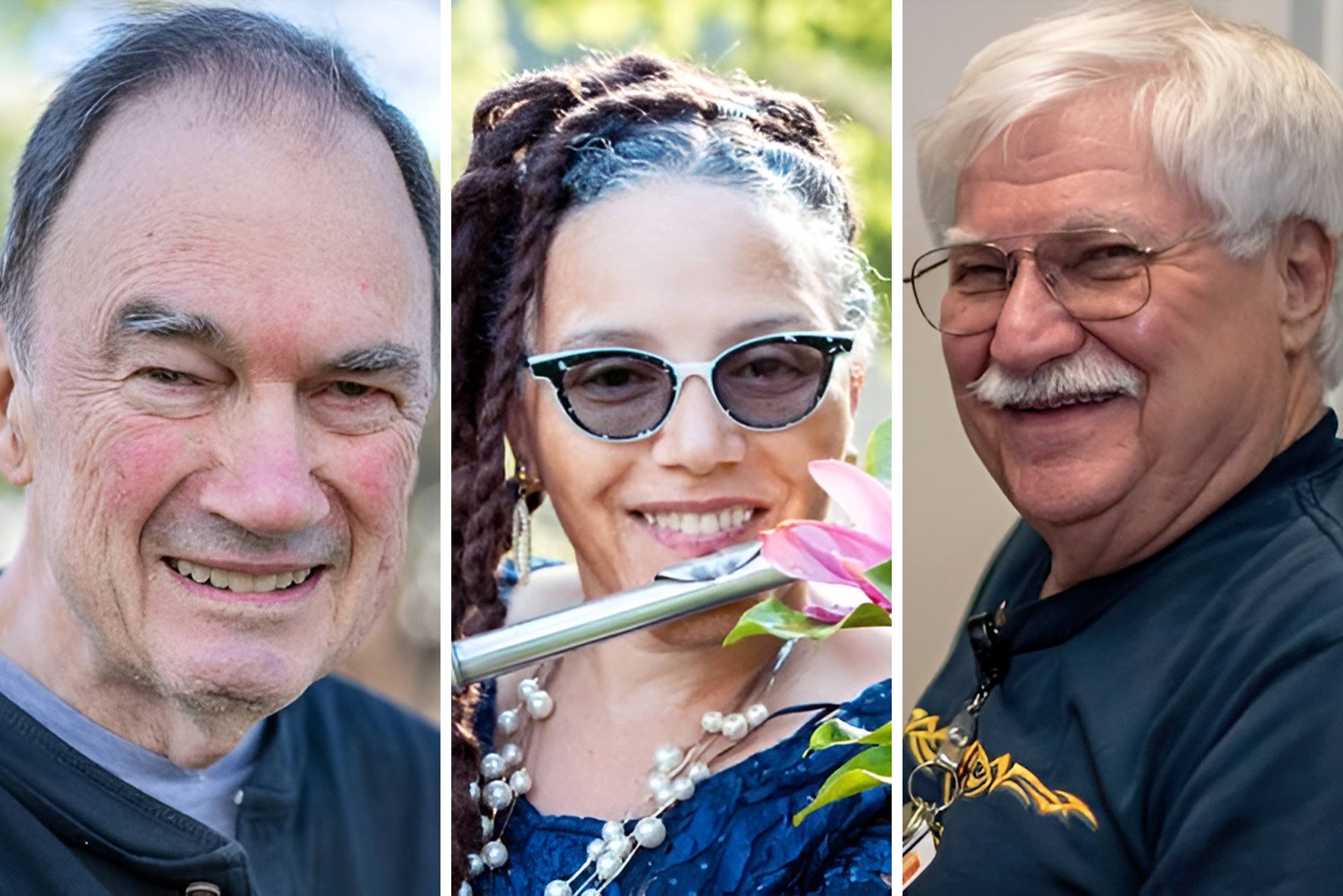Add three more University of Virginia faculty members to the list of American Academy of Arts & Sciences fellows.
The prestigious honorary society and research center announced April 23 that biology professor Raymond Keller, music professor Nicole Mitchell Gantt and astronomy professor Roger Chevalier join this year’s 250-member class. The academy dates to the American Revolution, and fellowship is considered one of the highest academic honors for faculty.
Keller, the Alumni Council Thomas Jefferson Professor of Biology, is also newly elected to the National Academy of Sciences in recognition of his pioneering work in developmental biology. Keller researched the cellular and molecular mechanisms underlying morphogenesis – the biological process that shapes cells, tissues and organisms – using live imaging techniques to study the movement of cells within an organism and the biomechanical properties in embryos. His research has enhanced science’s understanding of how cells and tissues develop, creating pathways to advancements in medicine and biotechnology.
“I am honored, humbled, delighted and thankful, all in one breath,” Keller said of his two academy elections. “I am especially thankful for my mentors, colleagues, students and postdocs, all those who have shared my journey and nourished the Keller lab over the years, in both good and challenging times.”
An award-winning performer, composer, bandleader and educator, Mitchell is perhaps best known for her unique improvisational work as a flutist. She has won repeat “Top Flutist of the Year” awards from the Downbeat Magazine Critics Poll and the Jazz Journalists Association.
Founder of the musical projects Black Earth Ensemble and Ice Crystal, Mitchell composes for contemporary ensembles of varied instrumentation and size. Her past honors and recognitions include a Guggenheim Fellowship (2023), United States Artist (2020), Doris Duke Artist (2012) and a 2011 Herb Alpert Award. Mitchell’s academic research centers on the powerful legacy of contemporary African American culture and the exploration of creative music as a doorway to the expansion of human consciousness.
“I am encouraged beyond words to be connected to the incredible history of the (American Academy). It is thrilling to join with major thinkers of the world whose work reaches for the best we can bring to humanity,” Mitchell said. “I am optimistically encouraged to be inspired by and to contribute to this amazing think tank of interdisciplinary inquiry, creativity and leadership.”
Elected to the National Academy of Sciences in 1996 in recognition of his distinguished and continuing research achievements in astronomy, Chevalier has expanded understanding of supernova explosions and their interaction with the surrounding gas, particle acceleration in shocks and the associated radio and X-ray emission, gamma-ray burst explosions and galactic-scale outflows.
Chevalier said he was deeply honored to be elected to the American Academy and to join colleagues he admires “in celebrating the power of discovery.”
“This recognition is also a tribute to the students, collaborators and friends at the University of Virginia who have shared – and sustained – my lifelong curiosity about the physical processes in the universe,” he said.
Three UVA Professors Elected to the National Academy of Sciences
In addition to biology professor Raymond Keller, two other UVA professors have been elected to the National Academy of Sciences. They are Dr. Mariano A. Garcia-Blanco, the F. Palmer Weber Medical Research Professor and chair of the UVA Department of Microbiology, Immunology and Cancer Biology; and Scott C. Doney, the Joe D. and Helen J. Kington Professor in Environmental Change in the Department of Environmental Sciences.
Congress established the National Academy of Science in 1863 via an act signed by President Abraham Lincoln. It is a private institution advising the nation on issues related to science and technology. Members of the NAS are elected by peers. It is considered one of the highest honors a scientist can receive.
Garcia-Blanco is an expert in virology and RNA biology, focusing on how they influence the body’s immune response to disease. Some of his recent groundbreaking research includes a discovery identifying key factors that determine a person’s risk for developing multiple sclerosis and findings about how viral RNAs in mosquito saliva affect the transmission of the deadly dengue viruses.
“I am incredibly proud of the recognition that Dr. Garcia-Blanco has received from the National Academy of Science for the impactful research and contributions to science he and his lab team members have made,” said Dr. Melina Kibbe, dean of the UVA School of Medicine.
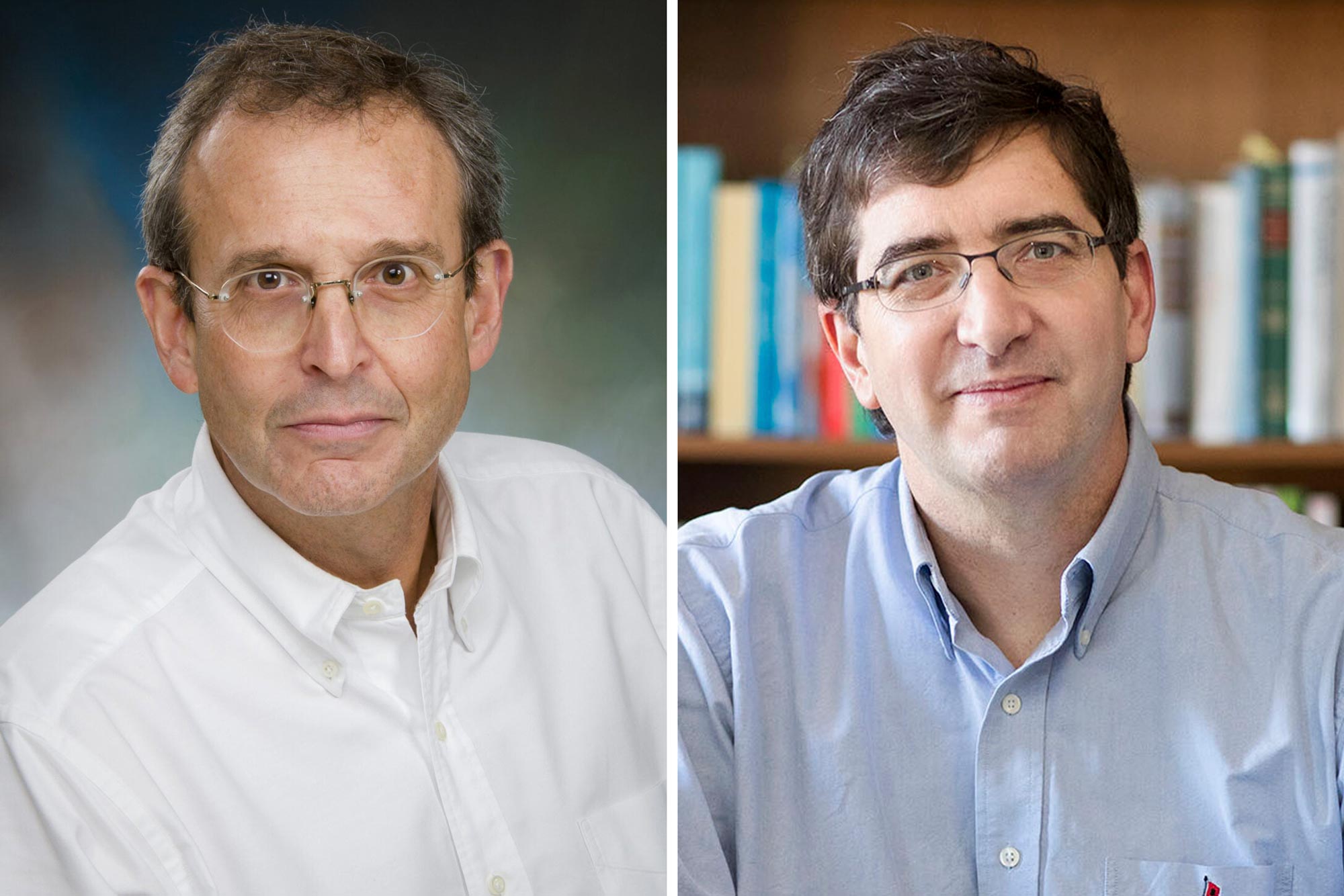
Joining Keller in the National Academy of Sciences are Dr. Mariano A. Garcia-Blanco, left, chair of the UVA Department of Microbiology, Immunology and Cancer Biology, and environmental sciences professor Scott C. Doney. (Left, School of Medicine photo; right, University Communications photo)
Only two other UVA School of Medicine faculty have been elected to the National Academy of Sciences: Edward Egelman (2019) and Dr. Robert Berne (1988).
Doney is known for his work on the global carbon cycle, ocean acidification and climate modeling. He joined the faculty in 2017 after holding positions at the Woods Hole Oceanographic Institution and with NASA.
“It’s an amazing honor recognizing the hard work of my team and my collaborators studying the ocean and how it’s changing under human pressures, including climate change and ocean acidification,” Doney said.
Recognition for Doney’s work comes at a crucial juncture for policymakers around the world.
“The scientific information is very clear, but the longer we delay in creating policy, the harder it’s going to be to stabilize the climate, the harder it’s going to be to limit the damages from a changing climate,” Doney said. “It’s a challenge that needs to be addressed, and the longer we delay, the worse the problems get.”
UVA Is Again the Destination for Top University of Chicago Graduates
For the third straight year, the University of Virginia is home to a winner of the University of Chicago Alumni Award for Professional Achievement.
This year’s honoree is Dr.Melina R. Kibbe, dean of the School of Medicine, the James Carroll Flippin Professor of Medical Science, and chief health affairs officer at UVA Health. She joins previous winners Ken Ono (2023), Marvin Rosenblum Professor of Mathematics and STEM adviser to the provost; and President Emerita Teresa A. Sullivan (2024).
A vascular surgeon, Kibbe has experience with both open and endovascular surgery. As a researcher, her lab focuses on developing novel drug-eluting therapies for patients with vascular disease.
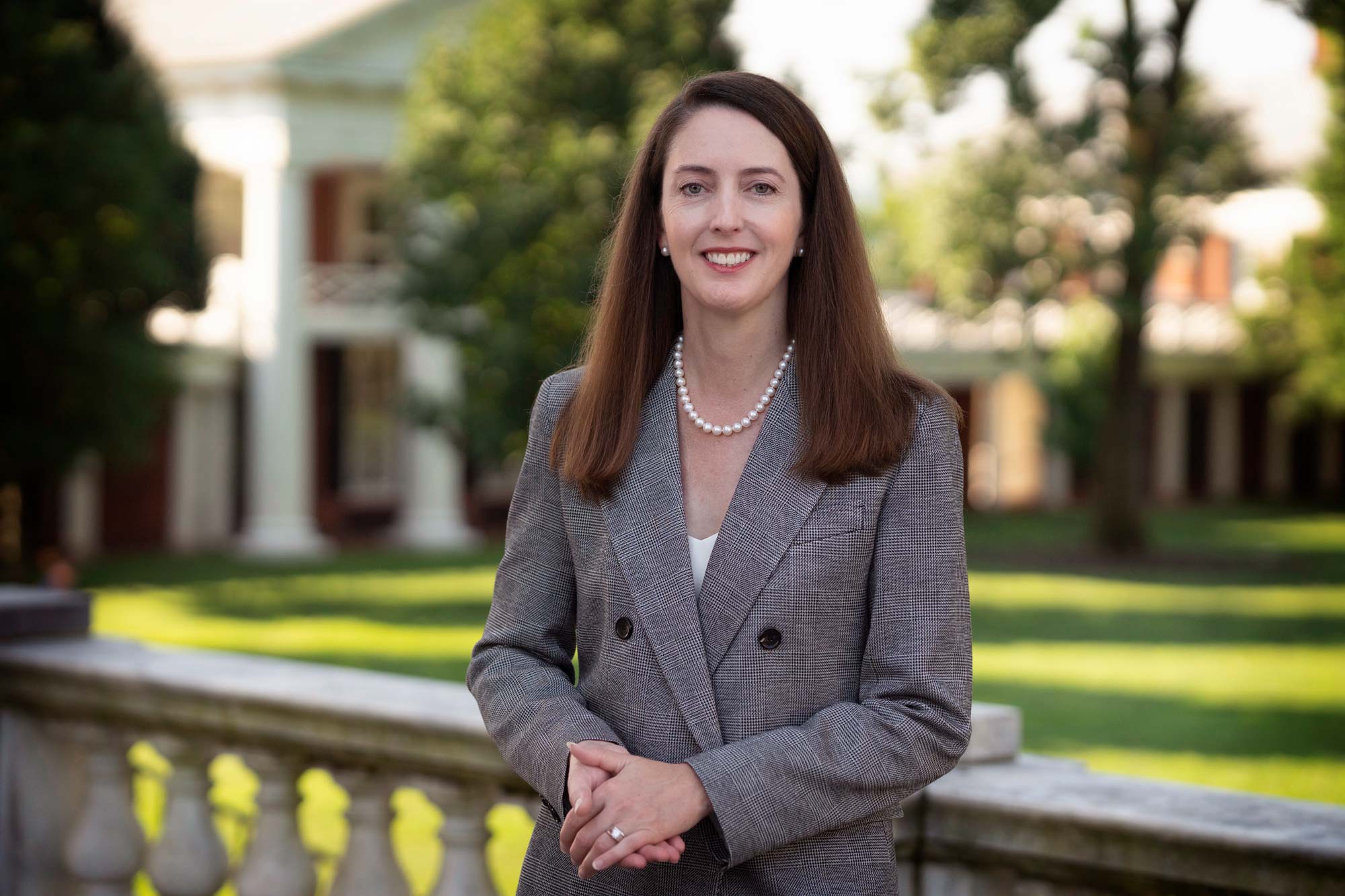
For the third straight year, the University of Chicago has chosen someone with UVA ties to receive one of its Alumni Awards for Professional Achievement. This year, it’s School of Medicine Dean Dr. Melina R. Kibbe. (University Communications photo)
She has written more than 300 peer-reviewed manuscripts, review articles and book chapters, and holds more than 10 patents or provisional patents. She has also received 24 awards for teaching excellence as a faculty member. President Obama recognized her research with the Presidential Early Career Award for Scientists and Engineers in 2009. Kibbe is also editor-in-chief of JAMA Surgery, the world’s top surgery journal.
Kibbe has long been a tireless advocate for sex-inclusive biomedical research and was featured in a “60 Minutes” interview with Leslie Stahl. She has also been a strong advocate for women in surgery and for surgeon scientists.
Kinesiology Professor Earns National Sports Medicine Award
Arthur L. Weltman, professor of kinesiology in the School of Education and Human Development, is a recipient of the 2025 Citation Award of the American College of Sports Medicine.
The Citation Award is granted to those who have made significant contributions to the mission of the organization, which describes itself as the “largest sports medicine and exercise science organization in the world.”
“I am honored and humbled to receive this award,” Weltman said. “However, I would never have been recognized with this honor if it weren’t for the talented students and incredible colleagues that I have been fortunate to work with over the years. To me, it is a testament to the collaborative multidisciplinary team approach to research that I have experienced since my arrival at UVA.”
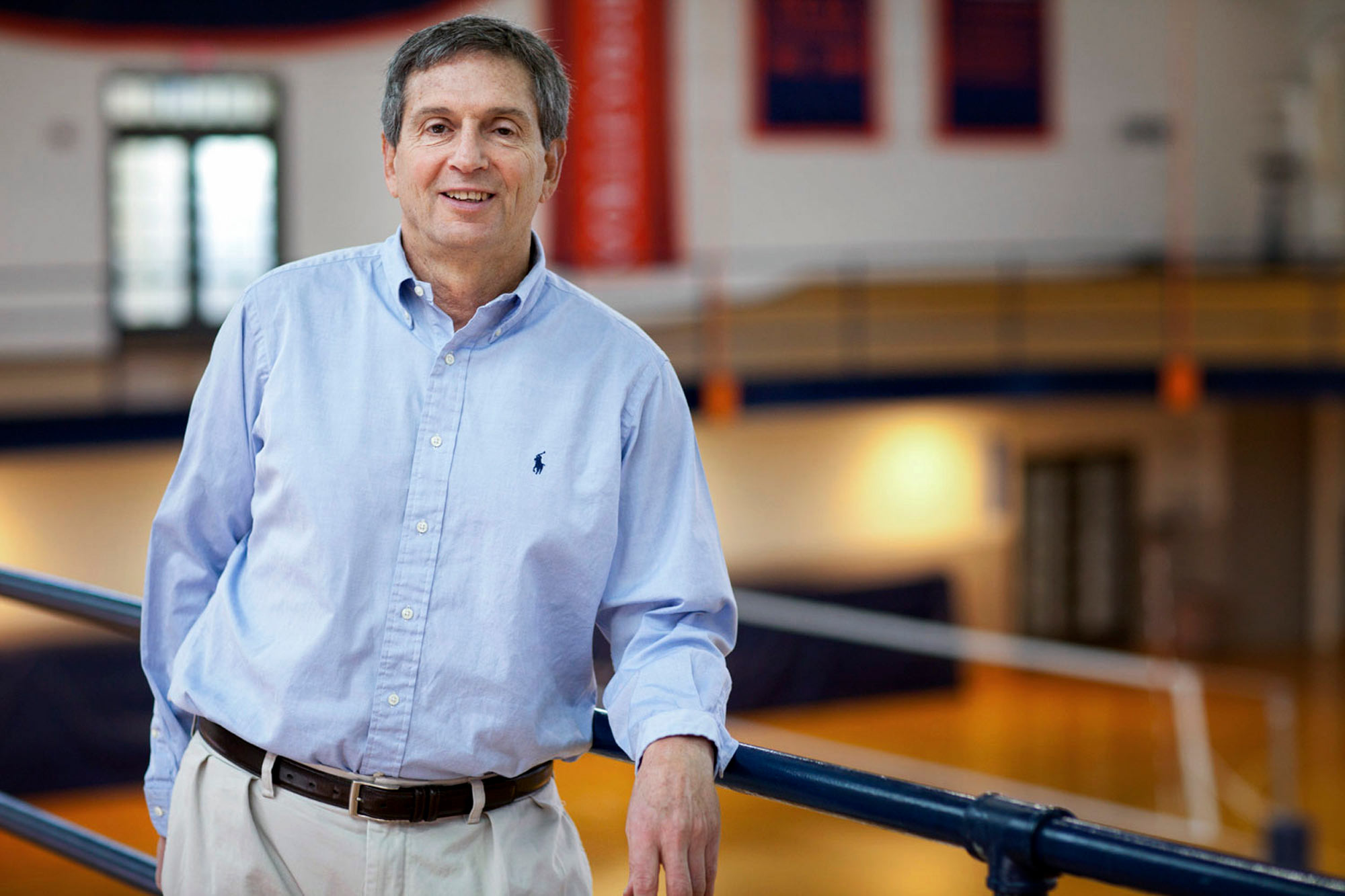
Arthur L. Weltman directs the Exercise Physiology Core Lab, where he studies the effects of acute and chronic exercise intervention in several clinical conditions. (University Communications photo)
Weltman, who holds a joint appointment in the School of Medicine, directs the Exercise Physiology Core Lab, where he studies the effects of acute and chronic exercise intervention in several clinical conditions.
“Art Weltman is a stalwart in the field of exercise science, and I am thrilled to see him recognized with this award,” said Stephanie Rowley, dean of the School of Education and Human Development. “His remarkable contributions to both academic and clinical practices have advanced our scientific understanding and the real-world application of how exercise interventions can improve health outcomes for individuals.”
UVA Is the Best Place for Best Papers in Economics
The American Economic Association recently handed out awards to the best papers published in each of its four American Economic Journals in the past three years. UVA economics professors Emma Harrington and Alexander MacKay claimed two of the four awards.
Harrington and co-author Natalia Emmanuel of the Federal Reserve Bank of New York took the AEJ: Applied Economics award for their paper, “Working Remotely? Selection, Treatment, and the Market for Remote Work,” published in October 2024. They used the COVID-19 pandemic to determine the impact of remote work on productivity and its implications for hiring practices.
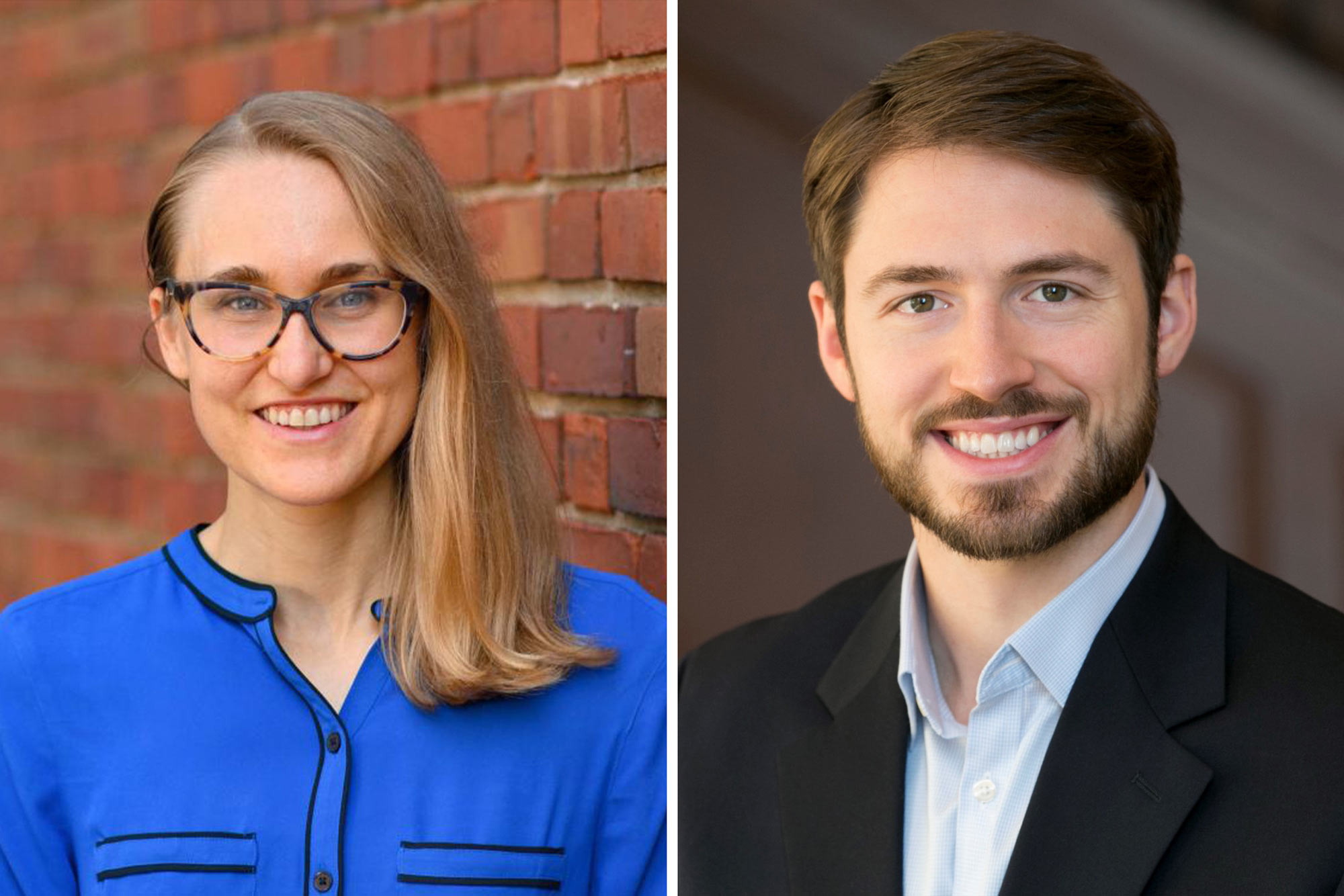
UVA economics professors Emma Harrington, left, and Alexander MacKay are credited as co-authors of two of the top four articles published over the past three years in the American Economic Journals. (Left, College of Arts & Sciences photo; right, Jefferson Scholars photo)
Analyzing data from a Fortune 500 company’s call center, they find on-site workers who transitioned to remote work saw their productivity drop by 4% relative to the less productive, already-remote workers. The authors argue that even though remote work can reduce costs and employee turnover, individual companies may not offer remote jobs for fear of attracting less productive workers.
